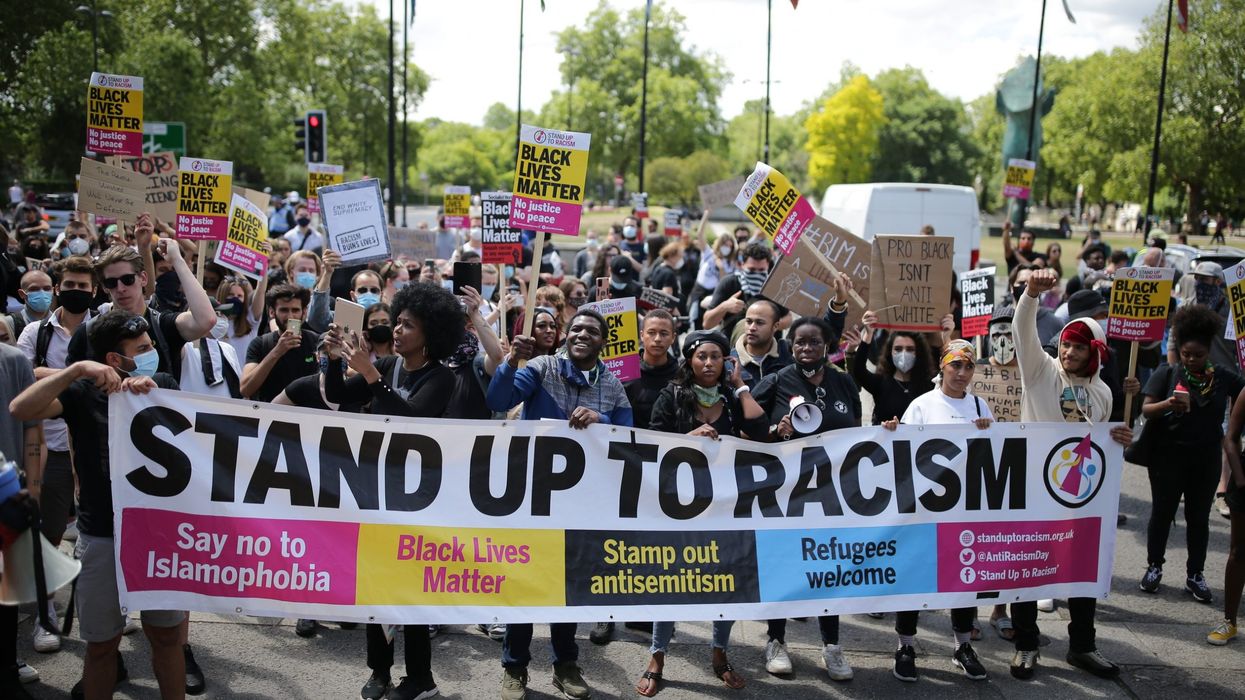THE UN human rights experts on Monday (19) rejected a review commissioned by Britain's government into race inequality as an attempt to 'normalise white supremacy despite considerable research and evidence of institutional racism'.
The report by the Commission on Race and Ethnic Disparities, issued on March 31, said that Britain should be seen as a 'model for other white-majority countries' - a conclusion that provoked fury from domestic critics who branded it a 'whitewash'.
"In 2021, it is stunning to read a report on race and ethnicity that repackages racist tropes and stereotypes into fact, twisting data and misapplying statistics and studies into conclusory findings and ad hominem attacks on people of African descent,” the U.N. working group of experts on people of African descent said in a statement.
“ ... the suggestion that family structure, rather than institutionalised and structural discriminatory practices are the central features of the Black experience is a tone-deaf attempt at rejecting the lived realities of people of African descent and other ethnic minorities in the UK.”
The UN experts behind the statement are the chair, Dominique Day, Ahmed Reid, Michal Balcerzak, Sabelo Gumedze and Ricardo Sunga III. The statement was endorsed by E Tendayi Achiume, the UN special rapporteur on contemporary forms of racism.
However, Britain stood by its report, with a spokesman for prime minister Boris Johnson saying the conclusions made by the human rights experts misrepresented the review's findings.
"Our view is that this report misrepresents the findings. We remain proud of the UK's long history as a human rights champion and we encourage everyone to read the original report in full," the spokesman told reporters.
"This report in no way condones racist behaviour and in fact it highlights racism and inequality are still problems for our country."
The report was ordered by Johnson's government after widespread Black Lives Matter protests last summer, triggered by the death of George Floyd in police custody in Minneapolis in the US.
Johnson has said the report - which said geography, family and socio-economic factors played a greater role on people's life chances than race - was stimulating but that more needed to be done to tackle racism.
The experts said the report used familiar arguments to justify racial hierarchy. "This attempt to normalise white supremacy despite considerable research and evidence of institutional racism is an unfortunate sidestepping of the opportunity to acknowledge the atrocities of the past and the contributions of all in order to move forward,” they said.
They denounced the report's "mythical representation of enslavement" as a bid to sanitise the history of trade in enslaved Africans by the former colonial power.
UN rights watch dogs, following visits in the last decade, have highlighted deep-rooted inequities health, education, employment, housing and criminal justice, they said.
“We are disappointed that the working group of experts on people of African descent has grossly misrepresented the report’s findings, and appears to be a response to negative press coverage rather than the substance of its content," a spokesperson for the commission which prepared the report told The Guardian.
“The misleading claims they have made risk fostering division on the subject of race, rather than constructive discussion on the issues. We urge the UK government to implement the 24 practical recommendations we have made. These will improve the lives of millions and help deliver a fairer society for all races and ethnicities in the UK.”





